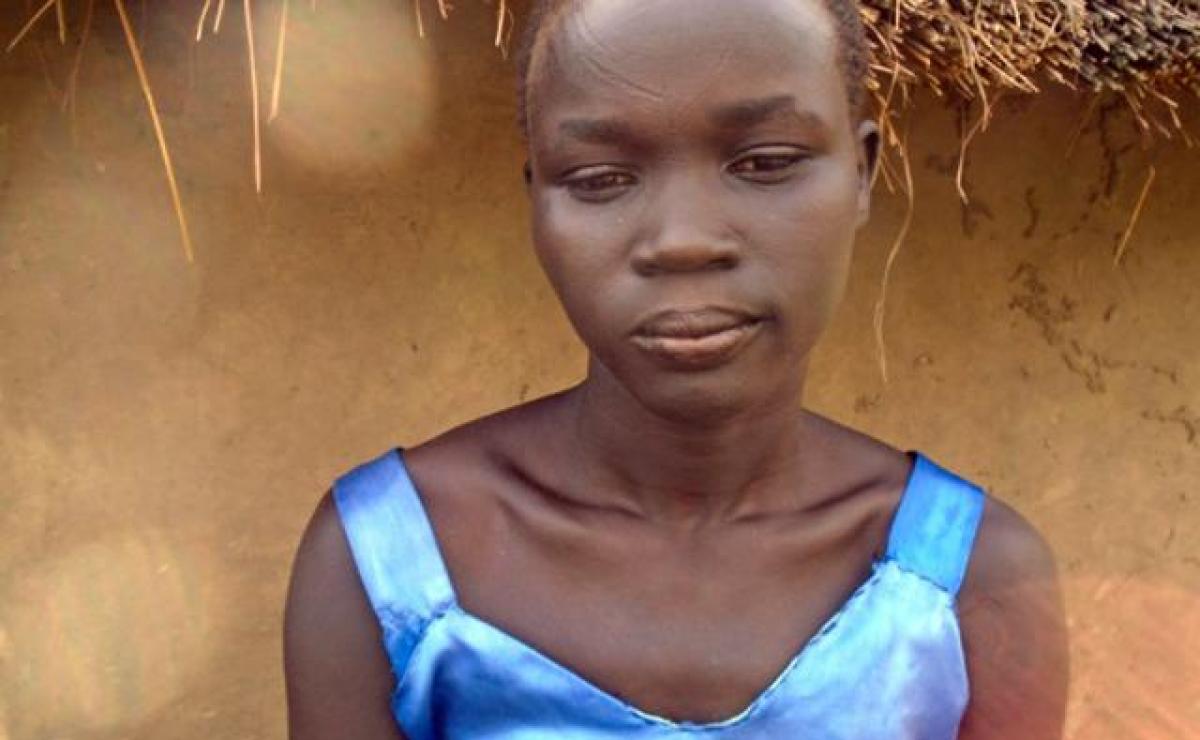Livelihood support for widows of war

LWF supports women-headed households in South Sudan
(LWI) - There was a time when Ayen Mayen Deu (26), a war widow from South Sudan, was forced to feed her children water lilies and other weeds. She foraged for wood to save her three children from starvation. Life changed when LWF started supporting her to grow vegetables with a program targeted to the special needs of women-headed households.
In South Sudan’s civil war tens of thousands have lost their lives, while more than four million have been displaced. Large parts of the population face severe food insecurity. With most men fighting, hiding or having been killed, it is the women, 60 percent of the population who are bearing the brunt of the conflict. They are disadvantaged in many ways; only 16 percent of the women and girls aged 15 and older are literate. According to a World Bank statistic, women and girls in South Sudan are more likely to die during childbirth than to complete primary education.
Difficult environment for women
The situation for women who lost their husbands to the war is especially difficult. They are alone in caring for their children and supporting their families financially. At the same time widows face social exclusion and sexual violence, and are being discriminated against when it comes to inheritance rights.
Before the outbreak of civil war in 2013, Ayen Mayen Deu was living a relatively peaceful life in Wernyol, a small village in Twic East County. In March 2014, Wernyol was attacked by the much feared ‘White Army’, a radical militia group associated with the Nuer people of the Upper Nile area. The local men, supported by government forces, fought back.
During the attack the village was burned down, property was looted and cattle raided. Wernyol turned into a ghost town. Ayen, her three children and many other villagers fled to Pawel, some four kilometers up the road. Her husband never joined them; the young mother soon learned that he had been killed.
“Life was hard for me as a single mother,” Ayen recalls. “I foraged for firewood in the bush to exchange for food. But often I was forced to feed my children water lilies and other weeds.”
LWF livelihood support
Relatives helped Ayen. She was given accommodation and a piece of land to grow food. But hunger remained a constant companion. “I was unable to produce seeds for the next planting season as the crops I produced were hardly enough to feed my children,” says the young war widow.
Ayen felt elated when she was selected by a local committee as a candidate for livelihood support from LWF. She received training in vegetable production and producing quality seeds. The young woman did not waste time and set up a model garden for vegetable and sorghum production. Ayen now visits the nearby market three times a week to sell okra and sukuma (kales). She uses the income, a little over US$ 4 per day, to buy meat, fish, soap and clothes. She also harvests some 250 kg of sorghum each year.
“I am grateful to LWF and its partners for recognizing the plight of the people of South Sudan,” says Ayen. “The war has turned many children into orphans and women into widows. I hope you will help many suffering people like me.”
LWF supports 800 women such as Ayen. 90 of them received cash support while the others are given training in food production. The programme is linking emergency relief to recovery activities.
LWF is one of the few international agencies working on the frontline in South Sudan. Facing a tough security environment, LWF supports vulnerable groups, providing access to education, food production and child protection. LWF also fights gender-based violence and other forms of human rights violations.
The project is supported by Australian Lutheran World Service (ALWS), Church of Sweden (CoS), Diakonie Katastrophenhilfe (DKH), the Evangelical Lutheran Church in America (ELCA) and the German National Committee (GNC)

